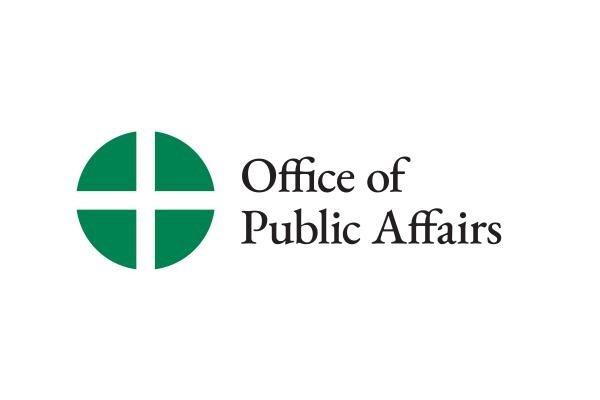Annual Ash Wednesday Collection Benefits the Church in Central and Eastern Europe
Since the collapse of communism in the early 1990s, the countries in Central and Eastern Europe have been endeavored to rebuild, but the severe consequences of the oppressive Soviet rule continue to challenge all aspects of life in the region. Each year, the U.S. Conference of Catholic Bishops' (USCCB) Collection for Central and Eastern Europe brings healing and opportunities for renewed life in Christ.
WASHINGTON - Since the collapse of communism in the early 1990s, the countries in Central and Eastern Europe have been endeavored to rebuild, but the severe consequences of the oppressive Soviet rule continue to challenge all aspects of life in the region. Each year, the U.S. Conference of Catholic Bishops' (USCCB) Collection for Central and Eastern Europe brings healing and opportunities for renewed life in Christ.
The annual collection supports youth ministry, seminaries, social services, pastoral centers, evangelization and catechesis, communications, and church construction and renovation in 28 countries. Most dioceses will take this collection in their parishes on Ash Wednesday, which this year is March 2. #iGiveCatholicTogether also accepts funds for the collection.
“The generation that has passed since the fall of the Iron Curtain has not yet undone the ruin perpetuated by decades of communist oppression,” said Bishop Jeffrey M. Monforton of Steubenville, chairman of the USCCB Subcommittee on Aid to the Church in Central and Eastern Europe. “When we give to the Collection for the Church in Central and Eastern Europe, we are sharing faith and mercy with people whose parents and grandparents were imprisoned for practicing the faith or praying.”
In 2021, gifts to the collection provided more than $6.4 million through 348 grants. Among them:
- In Poland, where more than 1 million people have fled the ongoing war in Ukraine, the Jesuits of Southern Poland and Ukraine Mission established DEON, UA, a Ukrainian language digital platform offering secular and Catholic news and discussion forums to help Ukrainian immigrants stay informed and build relationships.
- In Croatia, where one-fifth of the population lives in poverty and communism destroyed the tradition of volunteer work, “72 Hours Without Compromise” brings older teens and young adults together for four days in which they pray, learn about Catholic social teaching, and put their faith into action through service to the poor.
- In Belarus, the Tabita ministry organizes social and spiritual outreach to adults with disabilities, bringing them out of isolation to build friendships and receive help for their physical, social, psychological, and spiritual needs.
- In many nations, including Hungary and Romania, the collection is helping dioceses implement the standards set forth by Pope Francis 2019 Apostolic Letter issued motu proprio Vos estis lux mundi addressing the crime and sin of sexual abuse of minors and vulnerable persons by individuals serving in the Church. In some parts of this region, the creation and implementation of diocesan child and youth protection guidelines is the first systematic effort at child protection training by any major organization, secular or religious.
- In Bosnia-Herzegovina, where ethnic and religious animosities still carry a threat of violence, the John Paul II Pastoral Youth Center in Sarajevo brings together teens and young adults of all backgrounds for sports activities designed to help them build friendships across ethnic lines.
- The Roma people are perhaps the most marginalized ethnic group in Europe, with many living in communities that lack running water and electricity. In Slovakia, the Greek Catholic Archeparchy of Prešov is engaged in outreach among the Roma and produces documentaries to help other Slovaks understand and appreciate them.
“When we give to the Collection for the Church in Central and Eastern Europe, we are responding to our Blessed Mother’s love for those suffering under communism, to the call of St. John Paul II to aid those recovering from Soviet oppression, and to Pope Francis’ pledge of solidarity with those on the margins,” Bishop Monforton said. “In addition to our prayers and the ongoing work that the Church does in this region, gifts to this collection help us grow closer to the people of Central and Eastern Europe as brothers and sisters in Christ.”
More information and diocesan resources to help support awareness of the collection may be found at: www.usccb.org/ccee.
###
Media Contacts:
Chieko Noguchi or Miguel Guilarte
202-541-3200

